Top 10 Chemical Companies in India
The chemical industry is a team of companies producing industrial chemicals. The core job of this industry is to convert raw materials like natural gas, air, water, minerals, and oil, into a variety of different products. Chemical engineers, chemists, and lab technicians form the society of the chemical industry. The chemical business is known as a 'high-technology, knowledge-intensive enterprise.' As a result, traditional variables such as raw material availability, low labor costs, and market infrastructure are insufficient to propel this business forward.
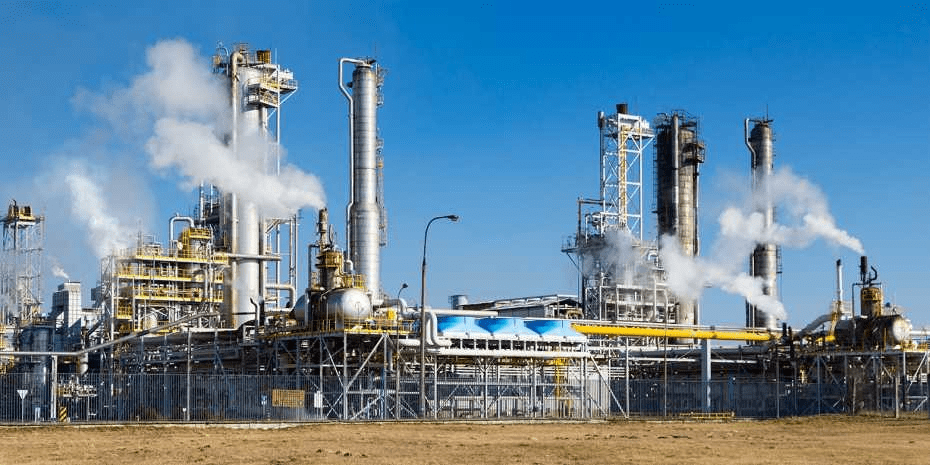
According to research, the countries with a perfect economic foundation and significant levels of industrial growth have been able to build an empire of chemical facilities. The substantial financial investment required to build up the chemical sector is a disadvantage for emerging countries.
Chemical synthesis is a relatively recent innovation in the field of quality management. The achievement of the chemistry sector in the national economy reflects the parallel development of industries such as engineering, metallurgy, and a variety of other manufacturing activities.
This industry generates a vast number of consumer goods. In people's daily lives, the importance of the chemical industry is negligible. This industry is undoubtedly a booming industry. In India's economy, the chemical industry plays a significant role. With approximately 70,000 commercial goods, the chemical industry is possibly the most diverse of all industrial sectors. The establishment of a pharmaceutical plant near Calcutta in 1901 can be considered the start of the Indian chemical industry.
India's industrial and agricultural development is in the chemical sector. Chemical industry products enable everything from the omnipresent cellphone to solar panels that produce carbon-free electricity to LED lights that provide efficient lighting. The chemical industry in India plays a critical role in delivering basic requirements and enhancing the quality of life. Despite its acute lack of conventional hydrocarbons, India has a well-developed refining industry that gives us a variety of fundamental chemical industry feedstocks. Even in a time of global uncertainty, the chemical industry has proven to be a reliable source of value. Chemical enterprises in India may benefit from global trends affecting the chemical sector in the near future. The chemical industry's future in India as well as the country's trade performance may be determined by how chemical operators prioritize and utilize this value-creation potential.
The chemical industry is the most knowledge- and capital-intensive.
So here is a list of the top 10 chemical companies in India:
1. Tata Chemicals:
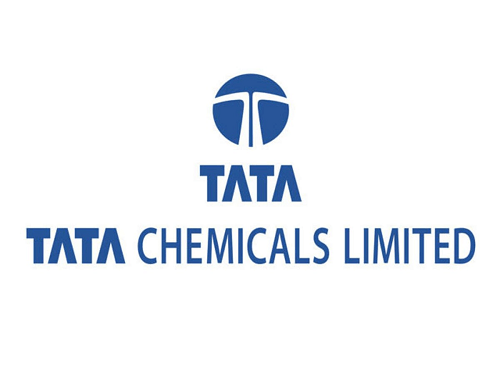
Kapilram Vakil is the founder ofTata Chemicals. It is a global brand in the field of chemical companies. Mumbai is the headquarter of Tata Chemicals.
It is the second-largest company in India producing soda ash. In 1938, Tata Chemicals came into existence. This chemical company is a subsidiary of the Tata Group.
Tata Chemicals has owned Brunner Mond, a UK-based chemical firm with facilities in Magadi (Kenya), and General Chemicals, a US-based chemical company, since 2006.
Tata Chemicals Ltd purchased 100% of the company on March 27, 2008. The aggregate capacity of production has expanded to roughly 5.17 million tonnes of soda ash as a result of these acquisitions. Tata Chemicals paid US$290 million in April 2010 for a 25% share in Gabon's ammonia-urea fertilizer facility. The plant's first phase will be capable of producing 2.2 billion tonnes of ammonia and 3.85 billion tonnes of urea per day. Tata Chemicals recently sold its urea business to Yara India, a subsidiary of Yara International, a Norwegian chemical corporation.
2. Pidilite Industries
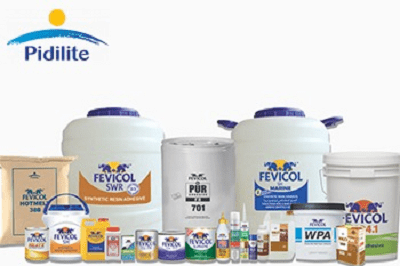
The moment we think of the name of Pidilite Industries, adhesive fevicol struck our minds. Pidilite Industries is one of the leading adhesive brands in India. Andheri, in Mumbai, is the headquarter of Pidilite Industries. Balvant Parekh is the founder, and Pidilite Industries came into existence in 1959.
Fevicol is one of Pidilite's most successful goods; several competitors in the market produce similar products but are unable to grow as quickly as Pidilite.
Fevikwik, Dr. Fixit, M- seal, Roff Cyclo, and Acron are some of Pidilite's other brands. Customers refer to the majority of its product names as generic terms. The company's manufacturing facilities are present throughout India, including Mahad (Maharashtra), Vapi (Gujarat), Baddi, and Kala Amb, all in Gujarat (Himachal Pradesh).
3. Gujarat Alkalies and Chemicals Limited
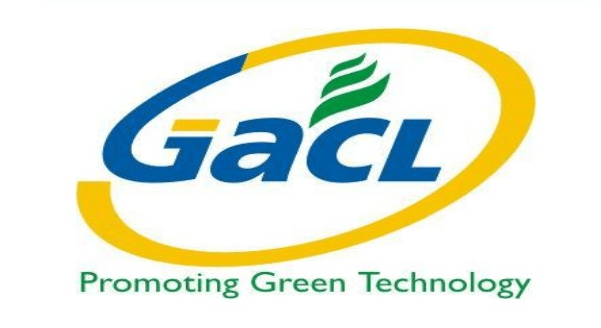
Gujarat Alkalies and Chemicals limited or GACL came into existence in 1973. GACL functions under the Gujarat state government. Ministry of Chemicals and petrochemicals Gujarat Government is the owner of GACL.
The corporation controls around 14% of the domestic Chlor-alkali market. Back in 1989, GACL was the first Indian business to replace Mercury Cell Technology with an environmentally friendly and energy-efficient Membrane Technology. Caustic Soda (Lye Flakes/Prills) is one of roughly 35 products in the company's product line. Chlorine in liquid form Chloromethanes Hydrochloric Acid Peroxide (H2O2) Potassium Caustic (Lye & Flakes) Carbonate of potassium Aluminium Chloride (Aluminum Chloride) Chlorinated Phosphoric Acid Paraffin Aluminium Chloride Polymer (various grades) Chloro-Toluene, Sodium Chlorate, and other chemicals
Caustic soda manufacturing began in 1976 at the Vadodara plant, with a capacity of 37,425 MTPA. The company promoted GIPCL Vadodara Gas-based Power Station. Also, other companies such as GSFC, Petrofils Co-operative Ltd., and Gujarat Electricity Board met electricity demand.
4. BASF India Ltd.
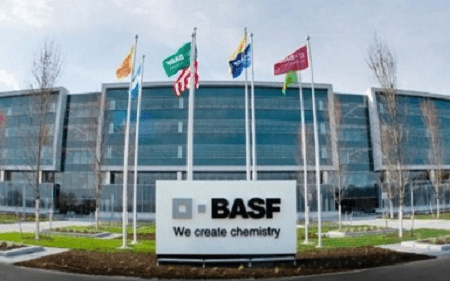
BASF is a leading transnational company in the Indian chemical industry. Their motto itself is very catchy 'We create chemistry.' It started functioning in 1943. It is a German multinational company and one of the top chemical industries globally.
They have operations in over 80 countries, in addition to India. It is the world's largest chemical corporation.
BASF India manufactures agricultural chemicals, leather chemicals, Styropor, tanning agents, and a variety of other chemicals. They're also in charge of marketing and selling these items.
BASF India employs about 1800 people and operates several manufacturing facilities. They also have their research and development laboratories. It was then renamed Indoplast in 1963 and registered as BASF India in 1967.
5. UPL Limited
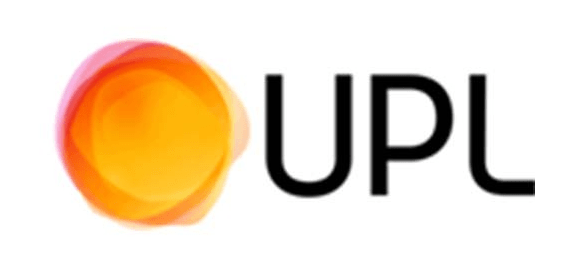
UPL is an Indian multinational company. Mr. Rajnikant Shroff is the founder of this chemical company.
This chemical company came into existence in 1969. In Mumbai, Bandra is the headquarter of UPL Limited. UPL was previously known as United Phosphorous Limited. It serves the world with its agrochemicals, industrial chemicals, chemical intermediates, and crop protection solutions.
The agro division, which includes the manufacture and distribution of traditional agrochemical products, seeds, and other agricultural-related items, is the company's principal source of revenue. Some non-agricultural items include Fungicides, herbicides, insecticides, plant growth regulators, rodenticides, industrial speciality chemicals, and nutrifeeds. These items are manufactured and sold in the non-agro category. UPL products are available in more than 150 countries.
6. P I Industries

P.P. Singhal is the founder of PI Industries. It is one of the flourishing agri-sciences companies. PI boasts enormous brand recognition and a global presence this is because of its integrated and creative products and solutions for its customers. They have been creating these over the years foundation of Trust, Integrity, and Respect for Intellectual Property. PI Industries has proved itself in contract research and manufacturing services too. Its headquarters are in India. It came into functioning in 1946.
The 1,30,000-square-foot state-of-the-art R&D center in Udaipur, Rajasthan, provides excellent infrastructure and lab facilities for research scientists to conduct activities and specialize in the discovery space, such as library synthesis, molecule design, and lead optimization, route synthesis, biological testing, and greenhouse testing. Over 130 Doctorates specializing in-process research and complex chemistry make up PI's strong staff of 300+ research experts. When it is a matter of in-licensing arrangements for patented / proprietary items for commercialization, the company's research & product development capabilities are at the heart of its cooperation with worldwide innovators. PI can deliver complete solutions to global customers because of its deep knowledge.
7. Solar Industries India Limited
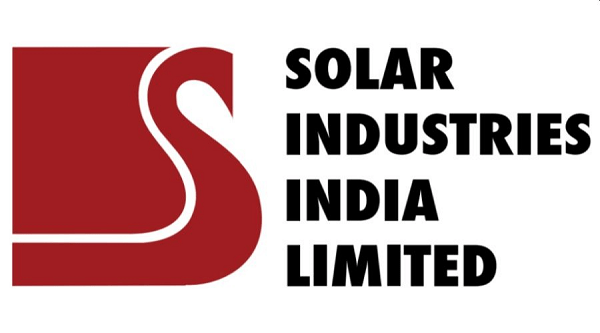
Shri Satyanarayan Nandlal Nuwal was the founder of Solar Industries India Limited before it was known as Solar Explosives. It came into existence in 1983. It is a booming industry and soon will become India's leading company in industrial explosives.
In Nagpur, India, the firm operates the world's largest packaged explosives manufacturing factory. With 25 manufacturing plants across India, the corporation has a strong presence. Solar Industries has manufacturing sites in five countries and is present in more than 51 countries worldwide. Solar Industries work with mining and infrastructure firms across the world including Coal India Limited, Singareni Collieries, Vedanta Ltd, and many others.
8. Aarti Industries Limited
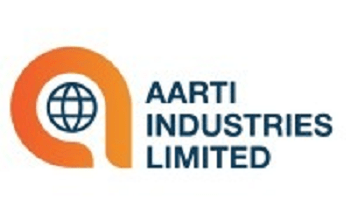
Aarti Industries Limited or AIL is one of the leading producers of specialty chemicals and pharmaceuticals. Its headquarters are in Maharashtra. Since 1984 AIL serves us. Shri Chandrakant Gogri is the founder of Aarti Industries Limited.
In 2013, Aarti Industries established Anushakti Chemicals and Drugs ltd. as a subsidiary company and Aarti USA. Inc to build the marketing and distribution chain in the United States.
AIL has evolved from an Indian corporation serving worldwide markets to a global entity with state-of-the-art production facilities in India during the previous decade. AIL produces chemicals that are useful in the production of pharmaceuticals, agrochemicals, polymers, additives, surfactants, pigments, and dyes in the downstream process.
The corporation has a total market capitalization of about 5000 crores, and it operates through 15 separate production divisions. They currently employ around 5000 people.
9. Coromandel International Ltd
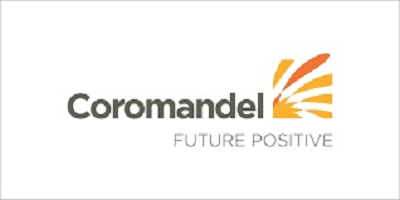
Coromandel International Limited's headquarter is in Hyderabad. Previously Coromandel International Ltd was known as Coromandel Fertilizers. This company started functioning in the chemical fertilizers and pesticides industry in 1960. IMC and Chevron Companies of the USA and EID Parry are the ones who brought this company into existence.
Coromandel International is India's second-largest Phosphatic fertilizer company. The company produces a wide range of fertilizers and sells over 4.5 million tonnes annually, making it a market leader in its target areas.
Through its Mana Gromor Centres, the corporation is engaged in the rural retail market in the states of Andhra Pradesh, Karnataka, and Maharashtra. Murugappa Group's Coromandel International is a subsidiary of EID Parry, which owns 62.82 percent of the company's stock. Andhra Pradesh, Tamil Nadu, Maharashtra, Gujarat, Rajasthan, Madhya Pradesh, Uttar Pradesh, and Jammu & Kashmir are among the states where the company has production facilities. Gromor, Godavari, Paramfos, Parry Gold, and Parry Super are among its brands.
10. Atul Ltd.
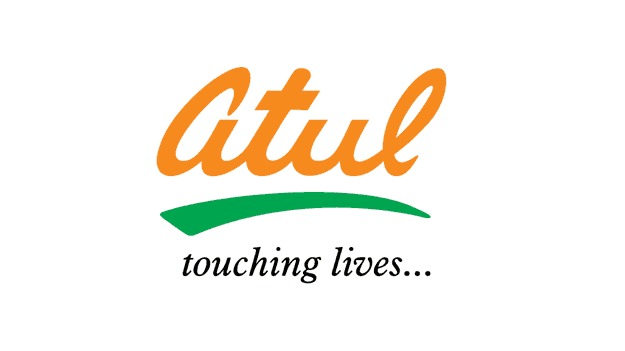
Atul Ltd manufactures 900 products and 400 formulations and owns 140 retail brands. Kasturbhai Lalbhai was the founder of Atul Ltd. This company came into existence in 1947 on September 5th. This company is India's one of the leading chemical companies in integrated chemical companies.
Atul Ltd serves 6000 customers across the globe. These customers belong to 31 different industries. It produces 900 different products and 400 different formulas. It also owns about 140 divergent brands.
This company has its offices in Ahmedabad, Mumbai, New Delhi, Thane, and other cities in India. This company has manufacturing plants in Gujarat's Ankleshwar, Atul, and Panoli. It also has its manufacturing plant at Maharashtra's Tarapur, Ambernath, Ankleshwar, and Atul in Gujarat, India, and Bristol, United Kingdom. Production facilities for the joint venture enterprises are located in Atul, Gujarat, and Jodhpur, Rajasthan, India.
In conclusion, Specialty chemicals, bulk chemicals, agrochemicals, petrochemicals, polymers, and fertilizers are all part of India's chemical industry. These are highly varied and unlicensed (except for certain dangerous chemicals). More than 80,000 commercial products are available through the industry's product offerings.
After the United States, Japan, and China, India is the fourth-largest producer of agrochemicals, accounting for roughly 16% of worldwide dye and dye intermediary output.
According to the perfect official figures, the Indian chemical sector showed a value of USD 178 billion in 2019. It is predicted to expand to USD 304 billion by 2025, with a compound annual growth rate (CAGR) of 9.3%. By 2025, it is estimated to attract investments of around Rs. 8 lakh crore.
In India, speciality chemicals account for 22% of the total chemicals and petrochemicals market. According to JM Financial Research, the speciality chemical sector rose from roughly USD 18 billion in 2014 to USD 32 billion in 2019 and is predicted to grow at a CAGR of 12.4 percent to USD 64 billion by 2025.